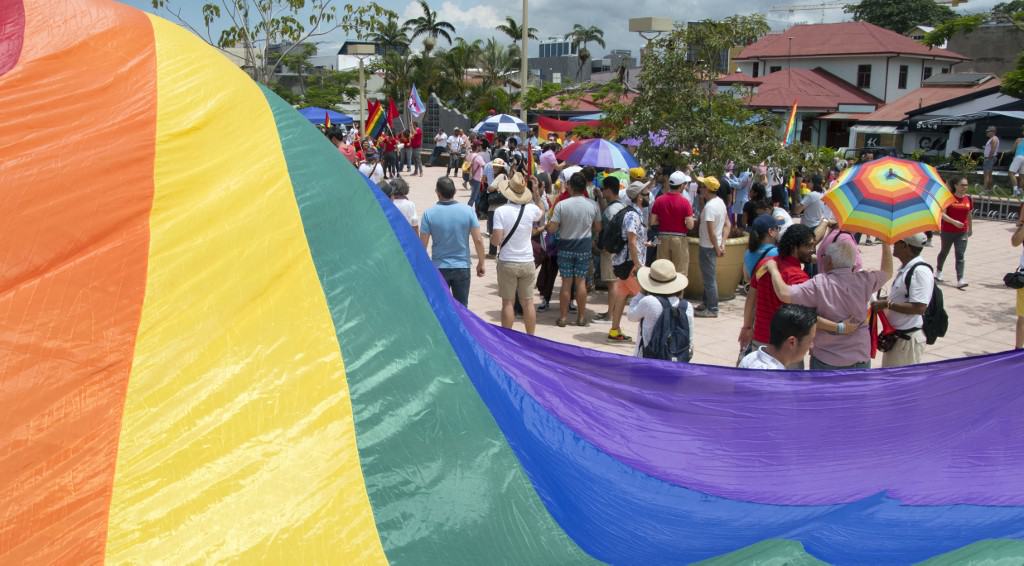In a unanimous decision, Costa Rica’s Constitutional Chamber (Sala IV) has dismissed an appeal challenging the Ministry of Justice and Peace’s reclassification of the closing event of this year’s LGBTIQ+ Pride March as “adults-only.”
The case, processed under file number 25-018208-0007-CO, arose after the Commission for the Control and Classification of Public Performances, a division of the Ministry of Justice and Peace, reclassified the final activity held in the Plaza de la Democracia, barring minors under 18 from attending the closing festivities. The Commission cited concerns about potential exposure to sexually suggestive expressions or attire.
According to the Constitutional Chamber, the decision is grounded in the protection of the best interests of minors, affirming the Commission’s authority to restrict access to certain public events. The Chamber emphasized that this authority stems from both Costa Rica’s constitutional framework and international human rights obligations.
The judges clarified that the reclassification did not constitute prior censorship or restrict how attendees could dress or express themselves. The restriction solely concerned the access of individuals under the age of 18 to the closing event and did not affect their right to participate in the remainder of the Pride March, the Chamber specified, seeking to balance child welfare with freedom of expression.
Advocacy groups representing the LGBTIQ+ community argued the measure was discriminatory, infringing on their rights to freedom of expression and non-discrimination. However, the Chamber unanimously rejected these arguments, finding that both the procedure and substance of the Commission’s decision were legally sound.
The case reflects heightened attention to the regulation of public events in Costa Rica, especially those involving vulnerable or protected groups, such as children and LGBTIQ+ individuals. The court noted that the Commission is legally empowered to review and impose age restrictions on public performances and gatherings where appropriate, not as a form of content censorship, but to shield minors from potentially inappropriate exposure.
While the full, detailed text of the decision is still being drafted, the Chamber’s statement reiterates that restrictions are focused specifically on access to the closing event and do not set broader limitations on the overall Pride March or similar events.
No further modifications to the event have been mandated. Organizers have not yet announced whether additional changes will be made to future editions of the Pride March in response to this ruling. The final text of the judgment, which may offer additional legal reasoning, is expected to be released in the coming weeks.






